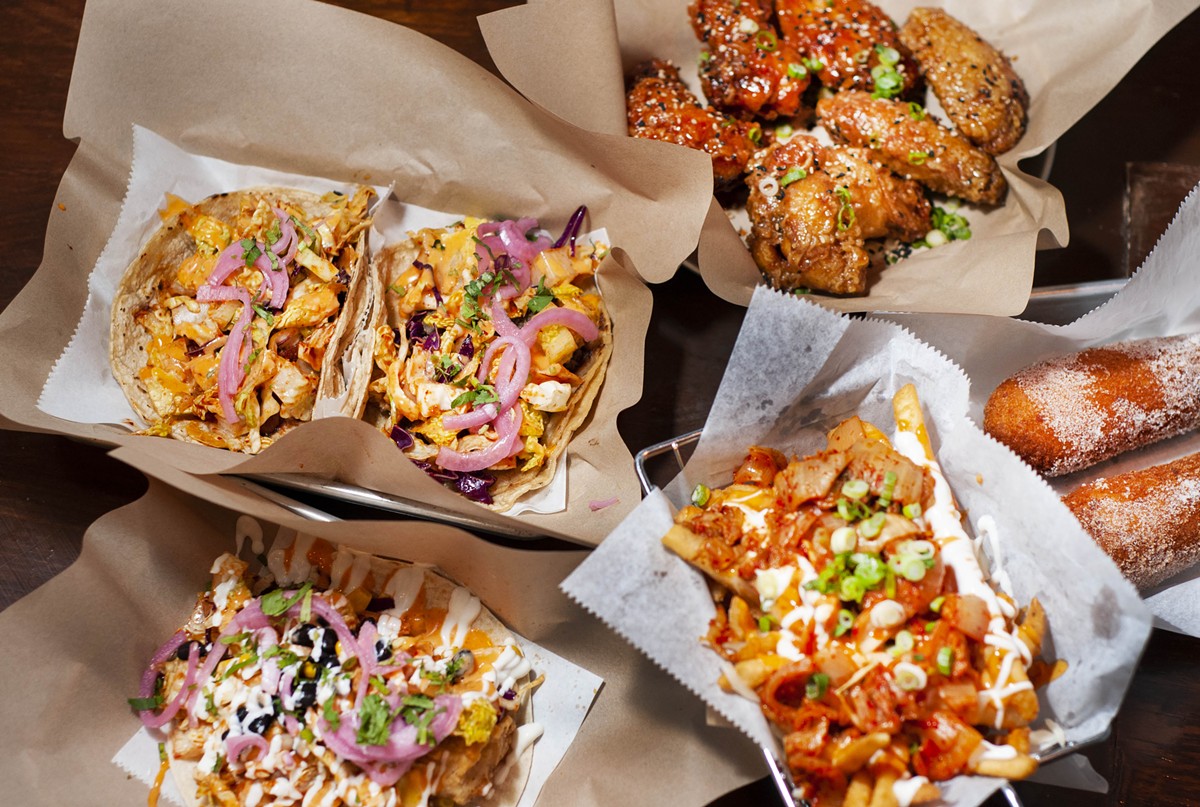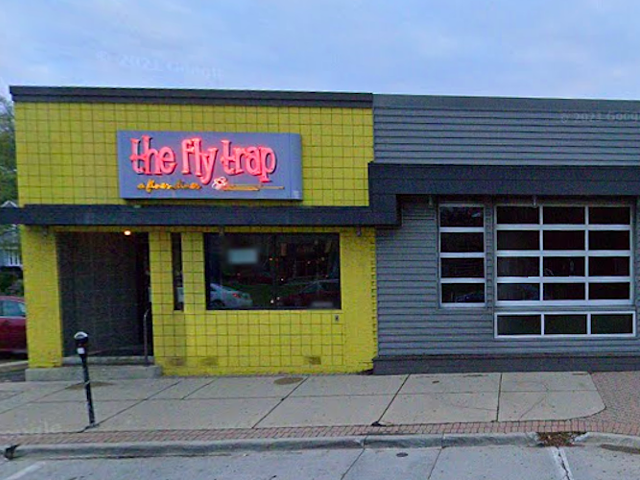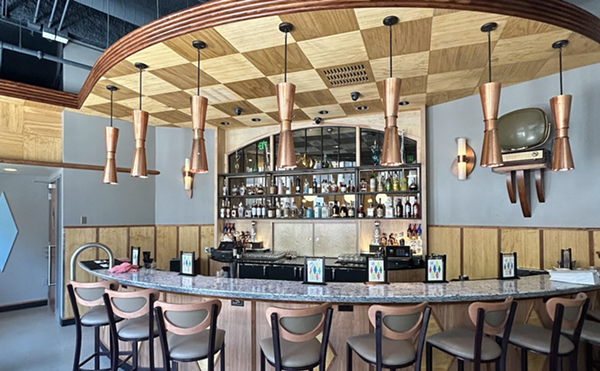When it comes to mixing and matching nations' cuisines, few are hand-in-glove quite like Korean and Mexican — the former are masters at barbecuing meats that are right at home in a corn or flour tortilla.
In southeast Michigan, Kimchi Box, a new suburban fast-casual mini-chain, is one of the few restaurants trading in the mash-up. It folds generous amounts of bulgogi, gochujang-fueled pork, Korean barbecue chicken, and more into tortillas — and these are plump boys, each topped with pickled red onion, cilantro, red cabbage, green cabbage, and lettuce, the latter of which is tossed in a Korean-style vinaigrette of soy, vinegar, and red pepper. The package is finished with a mayo sauce not unlike what one would find in sushi.
The best of the bunch were the bulgogi and pork, the latter of which is sweet and spicy, and it's hard to take a bite without thinking of a Mexican al pastor. Kimchi Box marinated it in gochujang, a sweet and savory fermented red chili paste that in this case holds only a minimal spice kick. One of the overarching themes in Korean cuisine is the sweet, savory, and salty profile, with bursts of chili and garlic.
The bulgogi, which literally translates into "fire meat," is melt-in-your-mouth tender beef. It's typically marinated in some combination of ingredients like soy sauce, brown sugar, sesame, garlic, ginger, and gochujang, and Kimchi Box also adds pear, kiwi and apple juice to the mix to enhance the sweetness. It's fantastic. You can also get the bulgogi in one of Kimchi's BBQ boxes, along with a huge helping of purple rice, kimchi, and Korean noodles, as well as a sausage rice cake.
Another winner is the tempura-battered cod taco topped with "sassy" mayo, corn, fermented black beans, and a sour cream-based sauce. The barbecue chicken taco is also worth a look. It's driven by bird marinated in garlic, ginger, soy sauce, and the same pear, kiwi, and apple juice component as the bulgogi to bring out the sweetness.
The tofu tacos were just OK, as the textural interplay between tofu and tortillas isn't my favorite, here or at other restaurants. But the kimchi tofu taco is the better of the two vegetarian options.
No surprise, Kimchi Box also offers plenty of Korean fried chicken. The twice-fried shells around the juicy bird were slightly thicker than those that I've encountered at some other Korean fried chicken purveyors, and the version with the sassy sauce is excellent with its sweet, savory, and slightly spicy elements. The soy-garlic popcorn chicken was also solid, though we would go for the sassy on a return visit. Both come adorned with sesame seeds and scallions.
Metro Detroit is filled with good fried chicken sandwiches, but Kimchi Box's Seoul fried chicken sandwich makes it mark as a monster that's busy with flavor and color from the sassy sauce, pickled onion, purple cabbage, green cabbage, lettuce, and white meat thighs, with plenty of crunch on a soft brioche. Kimchi Box uses chicken thighs instead of breasts, owner Min Kyu Kim says, because thighs, which stay a little juicer, are more popular in Korea.
The moz dogs are mozzarella-packed corn dogs that are part of the global Korean corn dog bonanza, and these will transport you back to a summer night at the State Fairgrounds. They're not too unlike a jumbo mozzarella stick, but with a crunchier shell, and a dusting of sugar, because it's Korean and you gotta have the sweet component. Why corn dogs in Korea? It's a trend that started in the recently-cheese obsessed nation nearly a decade ago, hit the west coast a few years back, and, thanks to Kimchi Box, is now in metro Detroit.
Kim, who left his consulting career in Chicago to launch Kimchi Box, opened locations in Auburn Hills, Plymouth, Sterling Heights, and Novi last year, and has plans for two more restaurants in 2022. His family is behind Ann Arbor's venerable Seoul Garden and Troy's Dae Jang Keum, so he knows his way around the trade.
The current locations offer a clean, fast-casual vibe and are largely carryout operations, which partly owes to the ongoing pandemic. It takes courage to open four restaurants in 2021, but Kim says he seized the opportunity to take over two closed Pei Weis and other eateries that shut during the pandemic, so he was able to get low-cost spots with infrastructure in place. He's partly finding success because he's one of the only fast-casual Korean games in town, though the new locations planned for 2022 will invite diners to sit down for a Korean barbecue experience.
Stay connected with Detroit Metro Times. Subscribe to our newsletters, and follow us on Google News, Apple News, Twitter, Facebook, Instagram, or Reddit.







